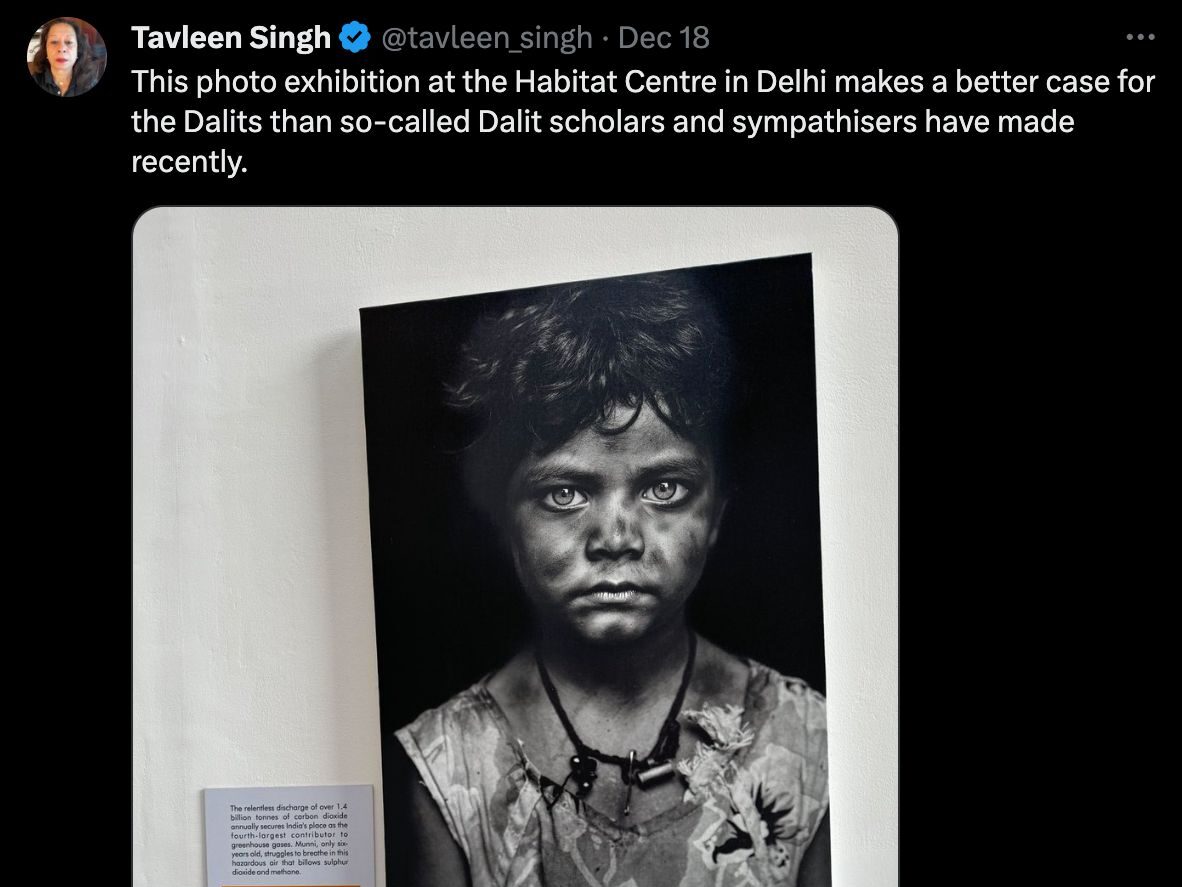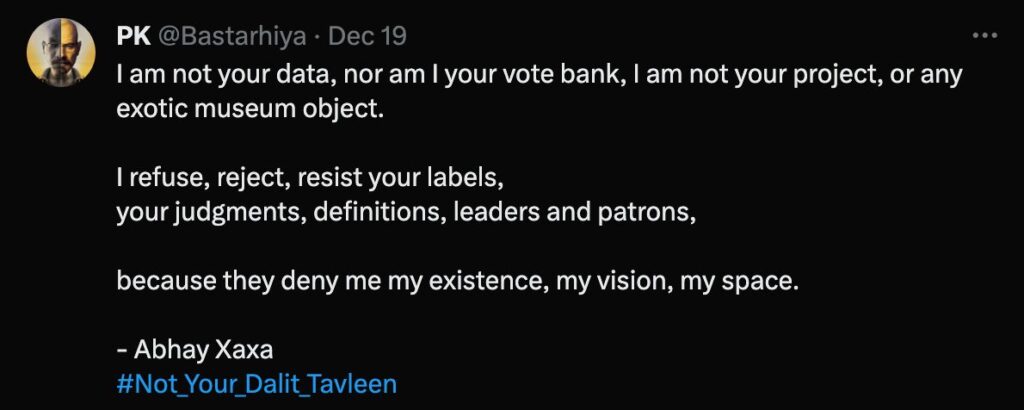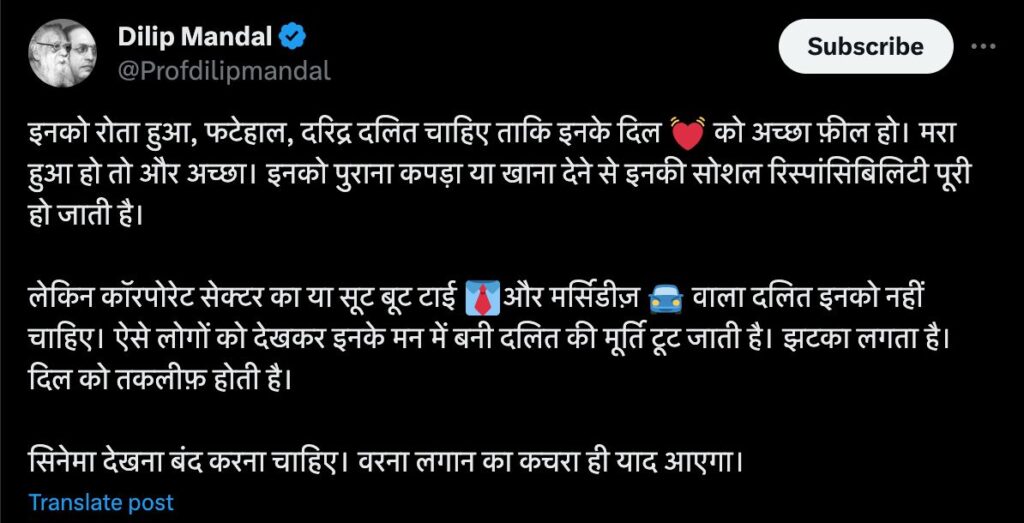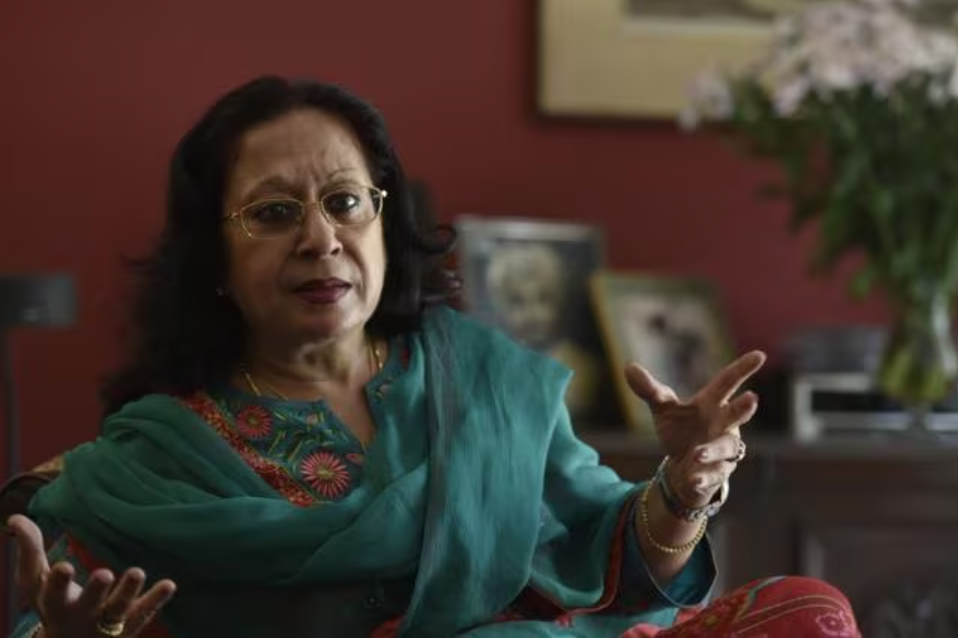The discourse surrounding reservations in India often spirals into two opposing viewpoints. On one side, there’s a resounding call for abolishing reservations, fueled by claims of injustice and reverse discrimination. On the other hand, proponents of Reservations/Affirmative Action point to its ongoing relevance in addressing systemic imbalances and ensuring equal opportunities for marginalized groups.
In “Time to end reservations,” Tavleen Singh’s simplistic call to abolish reservations overlooks the complex realities of ongoing societal inequities in India. Her pronouncements on caste and reservations cloaked in the facade of open dialogue, mask a deep-seated bias, a lack of understanding, and an insensitivity towards the lived experiences of the communities most brutalized by the enduring legacy of caste.
Singh’s reduction of reservations to a mere talking point, an invitation to “plain speaking,” betrays a profound ignorance of the historical weight of systemic inequities. For generations, people from Dalit communities have borne the brunt of discrimination, denied access to education, opportunities, and basic human dignity. Reservations, imperfect as they may be, represent a bridge across these chasms, a hard-won recognition of the structural barriers that continue to impede our progress. To dismiss them as mere “controversy” is to trivialize the struggles of millions who rely on them for a semblance of social mobility.

Her sharing of the “downtrodden” child photograph as an ideal of Dalit representation reeks not of concern, but of the voyeuristic “upper-caste gaze” that objectifies and dehumanizes the realities of Dalits. It reinforces the very stereotypes we fight against – the stereotypes of poverty, suffering, and inherent dependence. It flattens the complexities of our diverse experiences, reducing them to visual tropes for upper-caste consumption.
Singh’s belief in the “free market” as an ultimate resolution for Dalit upliftment exposes her paternalistic bubble. To suggest that those who have grappled with generations of institutionalized disadvantage, lack the agency to understand and pursue their own needs is not only patronizing but insulting. Those marginalized by their caste identity do not require benevolent guidance from Tavleen Singh but instead recognition of their expertise, of our lived experiences, and of the systemic forces that continue to hold them back.

Accusing Dalit leaders of thriving on “Dalit misery” is a cheap shot, an attempt to discredit the tireless efforts of those who fight for our social justice. To question their motives is to deny the very essence of the anti-caste movement, to belittle the sacrifices made by generations who dared to dream of a more equitable India.
But let us not be confined to critique. We should move beyond pointing out the flaws in Singh’s thinking and challenge the dominant narrative that centers upper-caste voices on issues of caste. And listen to and learn from those directly impacted by discrimination, and advocate for solutions informed by their lived experiences.
Amidst the reactions on Singh’s latest tweet, ‘Not your Dalit’ trends on X(formerly Twitter)




Education and awareness are our weapons. We must dispel the simplistic stereotypes, ideals and harmful images that are propagated and expose the complexities of caste, its insidious reach into every facet of our lives. Essentially, dismantle, brick by brick, the edifice of privilege built upon systematically exploiting and silencing the voices of Dalits.
Tavleen Singh may be entitled to her opinions, but her views on caste and reservations cannot be allowed to stand unchallenged. As Ambedkarites, we have a responsibility to speak truth to power, to dismantle the caste gaze, and to claim our rightful place in the narrative of our own liberation.
The fight for an equitable India will not be won through “plain speaking” or condescending pronouncements. It will be won through sustained struggle, through collective action, and through the unwavering belief in the inherent dignity and agency of every member of marginalized communities.

